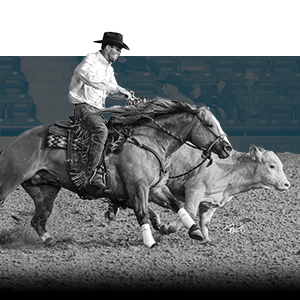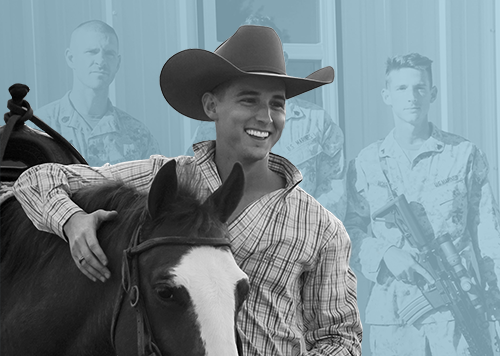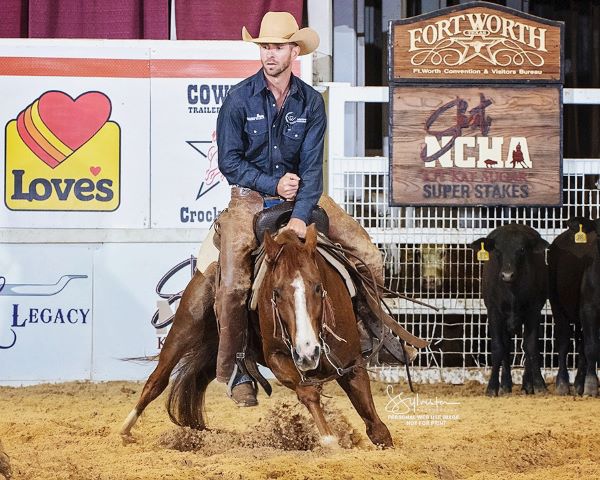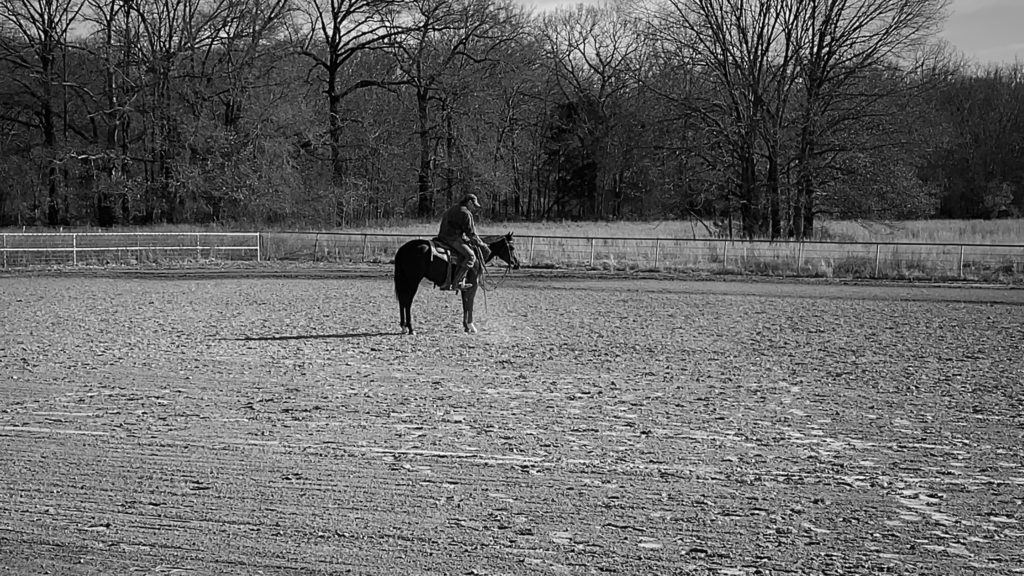
College Ranch Horse
by ms. paige linne Texas a&m stock horse team coach - published 7/15/2020
Ms. Paige Linne is the head coach to one of the top collegiate stock horse teams in the country.
Stock horse competitions that go back to the roots of our equine industry are some of the quickest growing and most refreshing ways to compete with your horse…. you now can even ride on a team while in college! There are over 20 collegiate ranch horse or stock horse teams in the nation that offer opportunities to ride while pursuing a higher education.
At Texas A&M University, we compete most frequently through Stock Horse of Texas (SHTX) and the National Reined Cow Horse Association (NRCHA). Classes include stock horse trail and pleasure, as well as reining and a cow horse class. In the collegiate division of these associations, riders must be full time students with non pro eligibility and fall under different divisions (for example, Non-Pro, Limited, and Novice in SHTX). To be competitive at each show, teams need to select “point riders” in each of those divisions, which means you don’t necessarily need a history of competition to make a roster and contribute. At most schools, you can try out for a team during your freshman year.
A wide variety of programs exist – from school sizes or locations, majors of study, and team structures. Based on your goals, there’s a program and school that fit your needs. Knowing what you want out of your college experience will help you find a program that fits you. In general, all coaches look for riders that stay on top of their academics, have good ‘feel’ and riding instincts, and will contribute to their program outside of the arena.
There are many benefits beyond just riding that come with being on a team. Students pick up a lot of character skills along the way, like learning how to work together with team members and lead oneself and others. You’ll gain an appreciation for hard work no matter the circumstances, commitment to a challenge even when it doesn’t always go your way, and discipline in the pursuit of long-term goals. There is no instant gratification in this sport.
Coaches, and the associations we show with, have placed a high priority on getting students in front of industry professionals and competitors. For example, this year industry leaders debuted a Collegiate Road to the Horse competition to showcase the talented horsemen in university programs and allow those students to interface with more professionals in the industry. Networking is one of the most important steps to success after graduation, and a life skill that transfers to the ‘real world.’ In our program, we try to bring in a few different trainers each year which helps us be able to learn from many different approaches. The amazing thing about the horse industry is that it is full of generous people who are hungry to “pay it forward’”; we’re thankful for those who give to our program!
Is Collegiate Ranch Horse For You?
The chance to keep riding while you pursue higher education is a one-of-a-kind life experience, but it challenges you to grow in new ways! Students learn top notch time management skills and work ethic to balance performance in the classroom and in the show pen. You may have had a full day of classes, practice, and studying, but your four-legged team member still needs to be cared for – the horse always comes first. Being invested in a team and working toward the common vision and goals that come along with that gives you the extra motivation and drive to stay on top of everything.
Depending on the program you may not need your own horse to participate and even compete to a high level! For example, at Texas A&M we have about 4 horses born and trained in our Animal Science program which are used for team members. Riders who have proven they are able to contribute to a team also may be able to arrange for an outside horse lease. At Texas A&M, we field a roster of 8 to 14 riders with a wide variety of riding backgrounds and career aspirations. The team here is fortunate to be housed on campus, so we can practice together 3 to 5 times per week. Outside of practice, students spend time on team meetings, traveling to competitions, riding for judging contests (like the San Antonio Livestock Show), or pitching in at shows hosted in our area.
There is a financial commitment. Horse showing is expensive, no matter where or how you do it- from horse care and equipment cost to being able to go down the road and compete. In most programs, students are responsible for fundraising sponsorships or donations to cover the cost of entry fees and travel. Scholarships and other funding opportunities to help with the cost of school are available through Stock Horse of Texas as well as at the university level. Most riders on our A&M roster receive some sort of competitive financial assistance through their efforts in the classroom and hard work outside of the arena.
What do College Ranch Horse Coaches Look for in a Student-Athlete?
School and grades always rank at the top. Each school will have slightly different entrance requirements, so it is important to do research on what fits you. After you are accepted in, you will have to maintain a minimum GPA so that you stay eligible for competition. Coaches want high level riders. A strong show history certainly helps if you plan to ride in the higher divisions; however, teams need riders who fall under novice eligibility too. In the tryout process we look for feel, seat, how you use your riding aids, arena awareness, and more. Beyond being a talented horseman, many coaches place a priority on character, or who you are outside of the arena. When evaluating potential team members for Texas A&M, I conduct personal interviews and even call references – I want to have an idea of a rider’s coachability, work ethic, reputation, leadership, and interpersonal skills. Ideally, a student is a good fit for our program and its values; but the program should also be a good fit for that student.
To set yourself up for success before college, stay on top of your grades, stay involved in extracurriculars and work to build your leadership and other skills. Be sure to read SHTX and NRCHA rulebooks and know what you need to do to protect your Non-Pro eligibility. If you’re aiming for a higher riding division, show as much as possible and get competitive experience. If you want to maintain novice level eligibility, it’s still valuable to get on as many horses as you can and learn as much as you can in a noncompetitive environment. Reach out to coaches or students at schools that interest you so you can learn more about those programs and how to get involved.
As a faculty member as well as a coach, I’ve seen the most success with college students that stay plugged in and involved in extracurriculars or competitive teams while pursuing a degree. My hope is that we are graduating stewards of the animal and students of the sport, who go on to keep elevating our industry in a variety of ways.
For more information on Texas A&M’s program, look us up on Facebook or reach out to Coach Paige Linne at plinne@tamu.edu.

Try horsepro with a 7 day free trial.
memberships start at $25/month. cancel any time.
Our member exclusive content includes raw, unedited training videos from young horse specialists and competitors at the top of their field as well as family friendly entertainment series.









